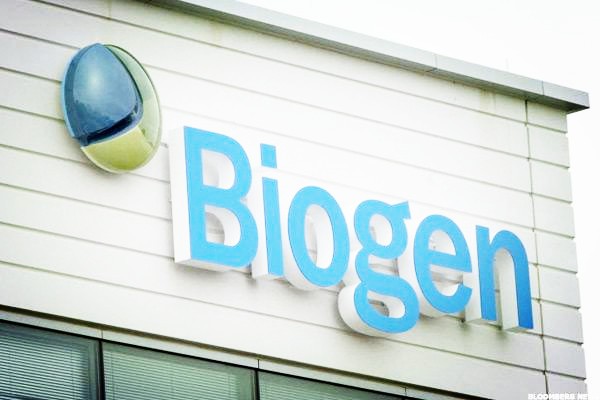Biogen Increases Profit Potential on Investigational Alzheimer’s Disease Treatment Aducanumab Through Amended Agreement with Neurimmune Holding AG
October 27, 2017
Source: media.biogen
 663
663

Biogen (NASDAQ: BIIB) announced that it has increased the profit potential on aducanumab, its Phase 3 investigational treatment for early Alzheimer’s disease, by reducing the potential royalty payment on potential commercial sales of aducanumab to Neurimmune Holding AG. In exchange for a 15 percent reduction in the previously negotiated royalty rates, Biogen agreed to make a one-time $150 million payment to Neurimmune Holding AG.
Biogen licensed the worldwide rights to aducanumab from Neurimmune Holding AG in 2007 and is responsible for its development and the commercialization.
“This amended agreement with Neurimmune improves aducanumab’s potential value to Biogen as we pursue our strategic goal of leadership in Alzheimer’s disease,” said Michel Vounatsos, chief executive officer of Biogen. “We are pleased with our ongoing collaboration with Neurimmune in Alzheimer’s and other neurodegenerative disorders.”
As part of this amended agreement, Biogen also has an option to further reduce the royalty owed on potential commercial sales of aducanumab by an additional 5 percent in exchange for an additional one-time $50 million payment to Neurimmune Holding AG.
About Aducanumab
Aducanumab (BIIB037) is an investigational compound being developed for the treatment of early Alzheimer’s disease. Aducanumab is a human recombinant monoclonal antibody (mAb) derived from a de-identified library of B cells collected from healthy elderly subjects with no signs of cognitive impairment or cognitively impaired elderly subjects with unusually slow cognitive decline using Neurimmune’s technology platform called Reverse Translational Medicine (RTM). Biogen licensed aducanumab from Neurimmune under a collaborative development and license agreement.
Aducanumab is thought to target aggregated forms of beta amyloid including soluble oligomers and insoluble fibrils which can form into amyloid plaque in the brain of Alzheimer’s disease patients. Based on pre-clinical and Phase 1b data to date, treatment with aducanumab has been shown to reduce amyloid plaque levels.
In August 2016 aducanumab was accepted into the European Medicines Agency’s PRIME program. In September 2016, the U.S. Food and Drug Administration accepted aducanumab into its Fast Track program and in April 2017 aducanumab was accepted into the Japanese Ministry of Health, Labour and Welfare’s (MHLW) Sakigake Designation System.
By DduRead more on
- Closing In On The Cause Of Alzheimer’s Disease December 2, 2020
- Significant Approvals, Diabetes And NASH In India, Japan M&A January 8, 2020
- Breakthrough Device Designation Granted to Digital Intervention for Alzheimer’s August 27, 2018
- Increase Memory Performance by Acting August 6, 2018
- Experimental Drug to Treat Alzheimer Disease August 1, 2018
your submission has already been received.
OK
Subscribe
Please enter a valid Email address!
Submit
The most relevant industry news & insight will be sent to you every two weeks.



